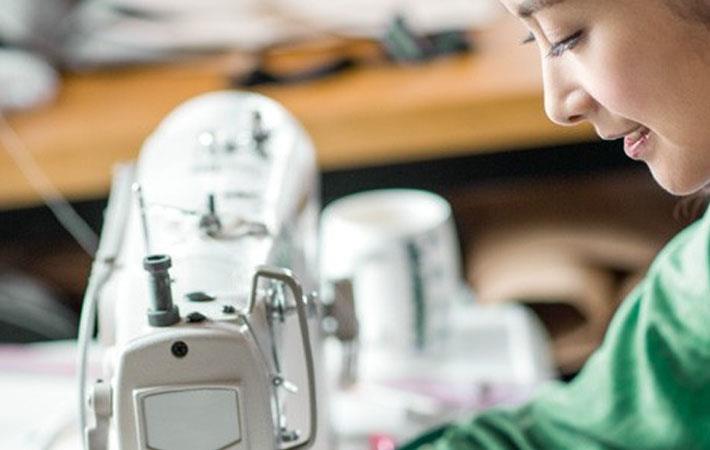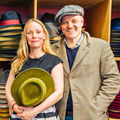Interviews
Oeko-Tex reports rise in sustainability-minded customers
04 May '18
3 min read

Courtesy: Oeko-Tex
Around 69 per cent of millennials and 74 per cent of parents of young children participated in Oeko-Tex’s global research survey, ‘The Key To Confidence: Consumers and Textile Sustainability—Mindsets, Changing Behaviours, and Outlooks’. The consumers, who were aware of eco-textiles, claimed that they check if sustainability claims in textiles are true.
To simplify the shopping process, many sustainability-conscious consumers choose to do their home-work in advance. Doing so establishes a brand set, or a collection of brands that align with their values. That brand set can include clothing and home textiles brands as well as retailer brands and certifications. 42 per cent of consumers in the study said they like to know the values and principles of the brands they buy, 34 per cent want to know about a brand’s sustainability practices, and 38 per cent like to know what small steps brands have taken to be more sustainable – even if they’re not fully ‘green’.
For millennials in the Oeko-Tex study, the internet ranked highest with 69 per cent of these 18-36-year-olds relying on it compared to 55 per cent of Boomers. Social media is another favourite with 55 per cent of millennials as opposed to only 25 per cent of Boomers. Three quarters (74 per cent) of Boomers chose mainstream media as their preferred source.
In store and on product are two prime point-of-sale opportunities to educate and influence consumers. Around 52 per cent of consumers in the research said that they check textiles for a label from an independent organisation that verifies claims are true. Almost 49 per cent read the fibre content labels to determine what kind of fabric is used. 41 per cent judge a textile product by where it was manufactured.
First, consumers are interested in what brands themselves say on websites, in advertising, and on social media. Next, consumers appreciate third-party validation with certifications and labels from trusted organisations. Third, information available while shopping, such as signage, hang tags and packaging, labels, thorough online product descriptions, and informed sales associates, can be highly effective in providing relevant textile sustainability information.
Brands, certifiers, and retailers who work together to provide credible information and reassurances will make it easier for busy consumers to do the right thing, provide another small step towards a more sustainable lifestyle, and enable more buying without worry about impact on the environment or society. (GK)
To simplify the shopping process, many sustainability-conscious consumers choose to do their home-work in advance. Doing so establishes a brand set, or a collection of brands that align with their values. That brand set can include clothing and home textiles brands as well as retailer brands and certifications. 42 per cent of consumers in the study said they like to know the values and principles of the brands they buy, 34 per cent want to know about a brand’s sustainability practices, and 38 per cent like to know what small steps brands have taken to be more sustainable – even if they’re not fully ‘green’.
For millennials in the Oeko-Tex study, the internet ranked highest with 69 per cent of these 18-36-year-olds relying on it compared to 55 per cent of Boomers. Social media is another favourite with 55 per cent of millennials as opposed to only 25 per cent of Boomers. Three quarters (74 per cent) of Boomers chose mainstream media as their preferred source.
In store and on product are two prime point-of-sale opportunities to educate and influence consumers. Around 52 per cent of consumers in the research said that they check textiles for a label from an independent organisation that verifies claims are true. Almost 49 per cent read the fibre content labels to determine what kind of fabric is used. 41 per cent judge a textile product by where it was manufactured.
First, consumers are interested in what brands themselves say on websites, in advertising, and on social media. Next, consumers appreciate third-party validation with certifications and labels from trusted organisations. Third, information available while shopping, such as signage, hang tags and packaging, labels, thorough online product descriptions, and informed sales associates, can be highly effective in providing relevant textile sustainability information.
Brands, certifiers, and retailers who work together to provide credible information and reassurances will make it easier for busy consumers to do the right thing, provide another small step towards a more sustainable lifestyle, and enable more buying without worry about impact on the environment or society. (GK)
Fibre2Fashion News Desk – India
Popular News
Leave your Comments
Editor’s Pick
































-Ltd..jpg?tr=w-120,h-60,c-at_max,cm-pad_resize,bg-ffffff)





.jpg?tr=w-120,h-60,c-at_max,cm-pad_resize,bg-ffffff)
.jpg?tr=w-120,h-60,c-at_max,cm-pad_resize,bg-ffffff)






